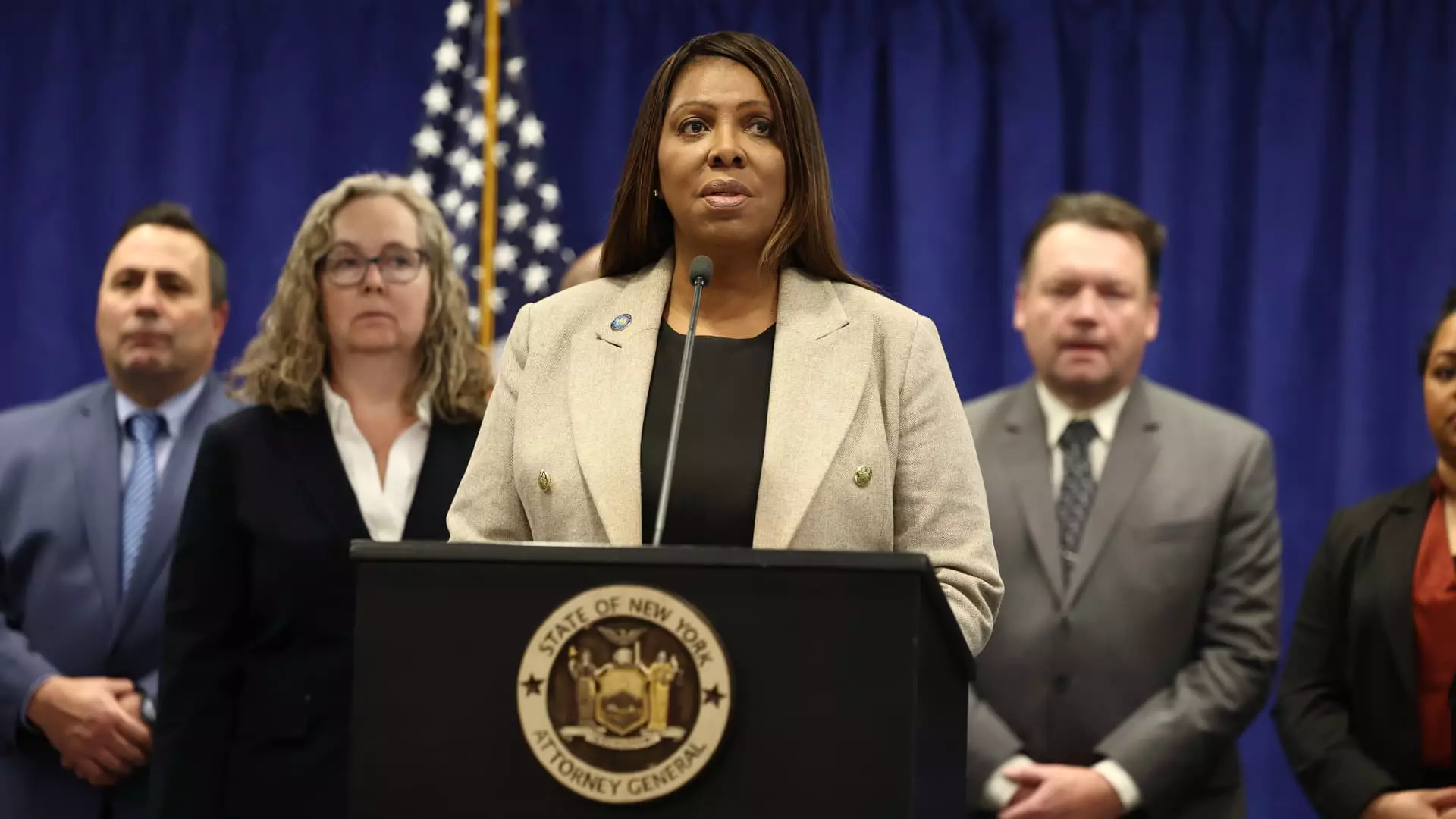In a climate where consumer rights are increasingly vulnerable, New York Attorney General Letitia James has stepped boldly into the breach. Her latest initiative, the Fostering Affordability and Integrity through Reasonable Business Act, aims to bolster protections for consumers and small businesses against predatory practices. This law comes at a crucial juncture as the federal Consumer Financial Protection Bureau (CFPB) has been effectively eviscerated under the leadership of Russell Vought, leaving a void that state authorities must now fill. James’ bill is not merely a legislative response; it represents a moral imperative to ensure that innocent consumers are shielded from exploitation in an age where digital transactions and financial dealings are rampant yet fraught with peril.
Loopholes No More: A Direct Offensive Against Scams
One of the standout features of this proposed legislation is its comprehensive approach to closing the loopholes that’ve allowed unscrupulous lenders, debt collectors, and health care firms to thrive at the expense of average citizens. The bill introduces stringent regulations designed to simplify subscription cancellations and protect vulnerable residents, particularly those in nursing homes who are often targeted for financial exploitation. James has rightly identified that in our current landscape, even the simple act of unsubscribing from a service can resemble an onerous task, convoluted enough to leave someone questioning their cognitive abilities. Such barriers are not merely annoying; they are deceptive practices designed to ensnare the naive consumer. New York is taking a bold stand against this insidious trend.
Regulatory Empowerment in the Face of Federal Weakness
James’ move is especially poignant given the drastic cuts and changes inflicted upon the CFPB. The Biden administration’s efforts to restore the integrity of this body have been thwarted, leading to mass layoffs and a chilling of enforcement actions. The departure of significant figures like Rohit Chopra and Lina Khan leaves a concerning gap in consumer advocacy at the federal level. The ironic juxtaposition of needing to rely on state-level AGs in such a dire federal climate is not lost on anyone following this narrative. By spearheading consumer protection legislation, New York is taking on the responsibility that should ideally fall under federal jurisdiction. It’s a powerful message that states can rise to the occasion when federal agencies falter.
Boots on the Ground: Real Change for Real People
What differentiates the FAIR Business Practices Act from mere words on paper is its actionable approach and real-world implications. The legislation targets predatory lending practices specifically aimed at steering consumers into high-cost loans. It’s a death knell for the so-called “junk fees” that have become a standard operating procedure for too many companies. These fees represent nothing but a corporate cash grab that exploits consumers without conscience. By directly confronting these practices, James is addressing a pervasive issue that impacts thousands of New Yorkers daily.
Additionally, the bill seeks to alleviate burdens faced by non-English speakers, giving them equitable access to financial information and support. This particular focus addresses a significant communication gap that has long served as a barrier to fair treatment. It’s high time that consumer protection evolves to recognize the complexities of modern society, where diversity and language barriers can contribute to economic disenfranchisement.
Political Landscape and Public Support
The bill has garnered bipartisan support, not just from within the New York legislature, but also from former officials of the Biden administration. This inter-political alignment underscores a collective recognition of the necessity for robust consumer protections. Former CFPB director Rohit Chopra’s statement affirms that stronger state laws are essential in combating abuses that threaten families and small businesses alike. This alignment across partisan lines demonstrates that consumer protection transcends political ideologies and should indeed be a shared priority.
However, let’s dig deeper: the enactment of such laws is just one piece of a larger puzzle. It necessitates diligent enforcement and a robust public awareness campaign to truly change the tide against malevolent actors. New Yorkers must not just know about their rights, but be empowered to assert them.
In a world where ethical business practices often take a backseat to profit, a bill like the Fostering Affordability and Integrity through Reasonable Business Act holds tremendous potential. It’s a testament to the resilience of state-level governance, showing that when federal mechanisms falter, local initiatives can take the lead in safeguarding the rights and financial wellbeing of citizens.

